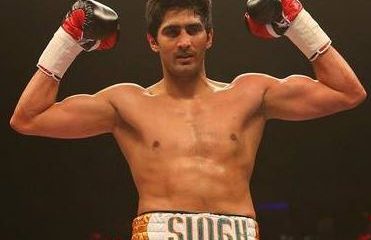World
Don’t restrict us in defence manufacturing space, private players say

By Vishnu Makhijani
New Delhi: The Indian government has identified six areas that private companies can bid for in the defence manufacturing space under the Make in India drive — which means replacement of the usual system of tenders and lowest bids — but stakeholders are upset that they can’t participate in more than one sector
Punj Lloyd spokesperson for defence Ashok Wadhawan, President – Manufacturing, echoed the general feeling in the industry when he said: “Our recommendation to the task force (constituted to identify the private players) is that instead of identifying a few companies per sector, the government should form consortiums and award them orders.”
The six sectors identified are aircraft and their major systems; warships of stated displacements, submarines and their major systems; armoured fighting vehicles and their major systems: complex weapons that rely on guidance systems; Command and Control System and critical materials (special alloys and composites).
Defence Minister Manohar Parrikar had said in early September that a task force had been constituted under former Defence Research and Development Organisation (DRDO) chief V.K. Aatre to identify the private players to be permitted into the defence sector. He said it was expected to give its report by month-end.
Parrikar also said there would not be any repetition of players in the six areas.
“There won’t be repetition. If X group has been taken in as a strategic partner in one segment, it will not be considered for another segment. It can participate in partnership for other products,” Parrikar had said.
The deadline for submitting the report has passed and enquiries reveal that it is nowhere near completion. And, it is on the basis of this report that the Defence Procurement Procedure (DPP), which will detail the nuts and bolts of the methodology to be adopted for involving the private sector, was to be drawn up.
“This is not likely to happen before the first quarter of 2016, which means the earliest the private sector can get involved is mid-to-late 2016,” a defence ministry source told IANS, speaking on condition of anonymity, given the sensitive nature of the subject.
Even so, all does not appear to be lost as the coming together of 60 of the best-known defence companies operating in India, both domestic and foreign, could signal the end in its present form of the DRDO, whose roots go back nearly six decades but which has little of substance to show by way of original products.
With defence offsets obligations of Rs. 25,000 crore ($4 billion) expected to accrue over the next seven to eight years, the formation of the Association of Defence Companies in India will see a broad-basing of the country’s manufacturing base, a process that is already underway in the small and medium industries sector
The alliance includes Boeing, Lockheed Martin, Bell Helicopter, Punj Llyod, AgustaWestland, Reliance Defence, the Tatas, Rolls Royce, Saab, Northrop Gruman, Rolta, BAE Systems, Dassault, Honeywell, Thales, Finmeccanica, Hindustan Aerosystems and Merlinkhawk Aerospace.
At a meeting earlier this month, the stakeholders felt the alliance would serve as a representative platform, with a unified voice, on policy matters pertaining to the government, armed forces and state-run enterprises that affect their operations.
This apart, the forum could also promote collaborations, support improved understanding among the members, pursue India’s strategic needs and deal appropriately with the interests of all the stakeholders.
This also means there would be greater interaction between the armed forces and defence manufacturers, something that is sorely lacking now.
This lack of interaction is because the DRDO, defence manufacturers like Hindustan Aeronautics Limited (HAL) and the armed forces (barring the Indian Navy) are functioning in silos, each charting their own course.
Just two instances would suffice here: The Arjun main battle tank (MBT) and the Tejas light combat aircraft (LCA) are still not fully operational after more than four decades of development as their specifications continue to change due to the designers, manufacturers and the users not being on the same page.
The Indian Navy managed to buck the trend because it established its own design organisaiton more than five decades ago and today has under construction not only a 45,000-tonne aircraft carrier – the largest vessel to be built in the country – but also two more nuclear-powered submarines in addition to one that is undergoing sea trials.
Thus, in a situation where the DRDO was established to reduce dependence on imports, India still imports 70 percent of its military hardware.
With the entry of private players, competitiveness will be the new mantra and the DRDO will have to quickly play catch-up or totally lose its relevance.
National
Foodman Vishal Singh Honored for Hunger Free World Mission in Bangkok

Lucknow: Vishal Singh, a renowned social worker from Lucknow, also known as Foodman, has once again made India proud. He was honored by the Happy Hands Gloves Cooperative Limited Company in Korathai, Thailand, for his work with the Hunger Free World Mission.
The Hunger Free World Mission’s meeting was held in Korathai, Thailand, under Vishal Singh’s leadership. Representatives from several countries, including Mr. Raja Dwivedi (Managing Director of Happy Hands Gloves Limited), Thailand Coordinator Mr. Raja Mishra, and member Mr. Varun Singh, attended the event.

Under Vishal Singh’s leadership, the attendees took a pledge to work together toward creating a hunger-free world.
Speaking on the occasion, Vishal Singh explained that the main goal of the Hunger Free World Mission is social participation. He said the mission is not just about feeding people but also about meeting other basic needs of those who are struggling. The mission focuses on helping families of terminally ill patients in hospitals by providing food and shelter. It also works to fulfill essential needs like education, jobs, and care for the elderly.
For the last 16 years, the Vijay Sri Foundation has been providing free services, benefiting thousands of people. Vishal Singh highlighted that the mission aims to gain global recognition like other organizations such as WHO, WWF, and Red Cross, which work for social causes.
During this meeting, Vishal Singh was appointed as the Chairman of the Hunger Free World Mission by representatives from various countries. They also discussed holding regular meetings in different countries to push the mission forward.
Business tycoon Dr. Abhishek Verma has also supported this humanitarian mission, vowing to promote the idea of “Seva Parmo Dharma” (Service is the highest duty) worldwide. Vishal Singh praised him, stating that people like Dr .Abhishek Verma inspire others to work for the betterment of society.
Recently, Romania’s Ambassador, Mr . Daniela Sezonov Ţane, invited Vishal Singh to the Romanian Embassy in Delhi, where they discussed the mission in detail. Impressed by his humanitarian work, she honored Vishal Singh and invited him to Romania to take the mission forward .
Food man Vishal Singh has been serving the people of India for the past 16 years. Through the Vijay Sri Foundation, he provides free meals to cancer patients & their families ,shelter, and education for women & children along with running free old-age homes in Lucknow.
In addition to his humanitarian work, Vishal Singh also addresses issues like crime and corruption through his role as Chairman of Seva Path Media and Managing Director of Vijay Sri Foundation.

During the COVID-19 pandemic, Vishal Singh and his team worked tirelessly to provide food and help to the needy, including starving children, elderly citizens, and pregnant women. Despite contracting the virus himself, he continued to assist others after his recovery. He even created a life-saving oxygen regulator using household items, which was praised by doctors both in India and abroad.
In his address at the meeting, Vishal Singh spoke about his mission to create a hunger-free world. He pointed out that India’s large population, along with issues like unemployment and poverty, has caused the country to fall on the Hunger Index. He urged people to contribute just one handful of grains daily to help create a hunger-free world.
He concluded by saying that through social participation, we can empower the people around us, meet their basic needs, and work together to build a stronger, more prosperous, and developed society.























